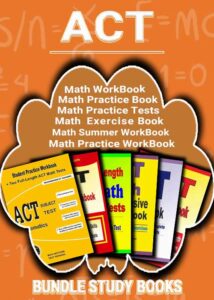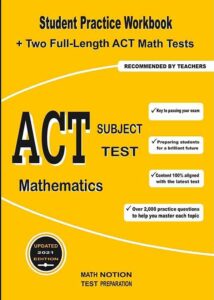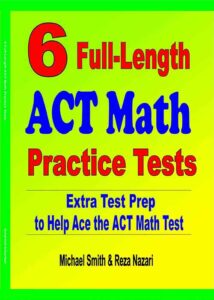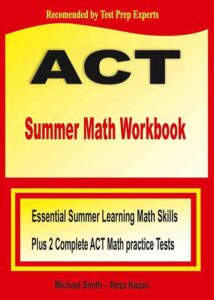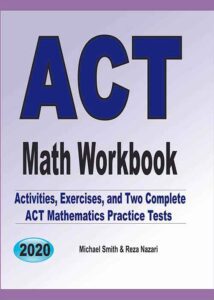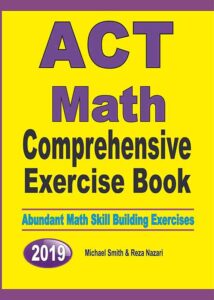
Study Time: 3minutes
How to Prepare for the ACT test?
The ACT (American College Testing) exam stands as a crucial milestone for students aspiring to secure admission to undergraduate programs in the USA and Canada. Serving as a standardized assessment tool, the ACT evaluates students’ proficiency in writing, mathematics, verbal, and scientific skills. Unlike many other standardized tests, the ACT does not have specific grade or age requirements, making it accessible to a wide range of students. In this guide, we’ll delve into the essential steps and strategies to prepare effectively for the ACT, ensuring you perform your best on test day.
Understanding the ACT Test
Before diving into preparation strategies, it’s essential to grasp the structure and format of the ACT exam. The test comprises four main sections: English, Math, Reading, and Science, with an optional Writing section. Each section evaluates distinct skill sets, ranging from grammar and algebra to reading comprehension and scientific reasoning.
Registration Process
The first step in preparing for the ACT is to register for the exam. Registration is typically conducted online through the official ACT website. Candidates are required to create an account, choose a convenient test location and date, and complete the registration form. Essential documents, such as high school course details and a photo, are needed during the registration process. Additionally, candidates must pay the exam fee to confirm their registration. It’s crucial to note that registration deadlines usually fall 3 to 4 weeks before the test date, so ensure to plan accordingly.
Tips for Each ACT Section
- ACT English Section: Focus on mastering grammar rules, punctuation, and sentence structure. Practice identifying the most appropriate grammar and style in various contexts.
- ACT Math Section: Familiarize yourself with algebra, geometry, and trigonometry concepts, as these form the basis of the math section. Practice solving a diverse range of math problems to build confidence and proficiency.
- ACT Reading Section: Develop effective reading strategies to navigate through different types of passages, including social sciences, prose fiction, humanities, and natural sciences. Prioritize answering questions from easier passages first to maximize efficiency.
- ACT Science Section: Approach science-related passages with a focus on logic and reasoning rather than specific scientific knowledge. Practice interpreting graphs, charts, and experimental data to hone your analytical skills.
- ACT Writing Section: While optional, students should consider taking the Writing section if required by the colleges they are applying to. Practice formulating coherent arguments and presenting multiple perspectives on debatable issues.
Effective Preparation Strategies
To prepare for the ACT effectively, consider the following tips:
- Master Frequently Tested Concepts: Focus on the most frequently tested concepts in each section, including grammar rules, algebraic equations, and reading comprehension strategies.
- Utilize Reputable Study Materials: Invest in high-quality study guides from reputable publishers such as Kaplan and McGraw-Hill. These resources offer comprehensive coverage of ACT content and practice questions.
- Practice, Practice, Practice: Regular practice is key to success on the ACT. Set aside dedicated study time to work through practice tests and questions, simulating real exam conditions as closely as possible.
-
- Manage Your Time Effectively: Use the entire allotted time for each section of the exam, pacing yourself to ensure you can complete all questions within the time constraints. Avoid rushing through questions, as even seemingly easy ones can trip you up if approached hastily.
- Identify Weak Areas: Conduct regular assessments to identify your weak areas and focus your study efforts accordingly. Targeted practice in areas of difficulty can lead to significant improvements in your overall performance.
Conclusion
Preparing for the ACT requires diligent study, strategic planning, and effective time management. By understanding the structure of the exam, mastering key concepts, and employing proven preparation strategies, you can maximize your chances of success on test day. Remember to approach each section methodically, utilize reputable study materials, and practice consistently to achieve your desired score. With dedication and perseverance, you can conquer the ACT and take a significant step towards achieving your academic goals.

